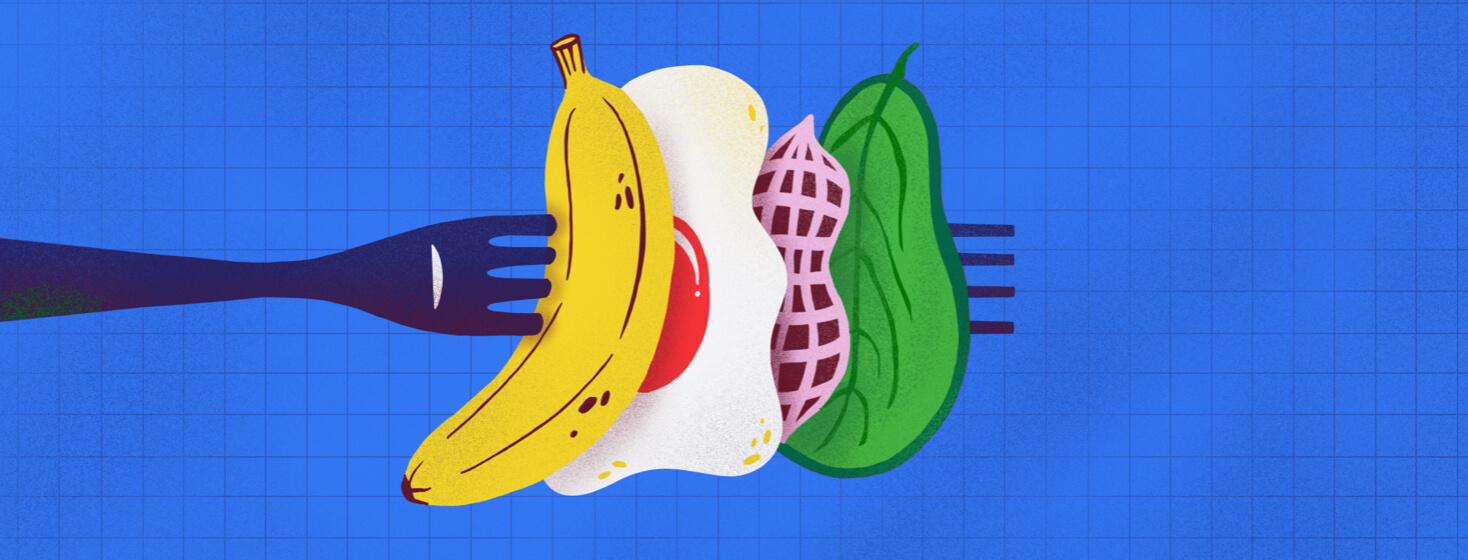Eating To Feel Better When You Live With MS
People with MS routinely talk about the diets they stick to and how the routine improves their lifestyle for therapeutic reasons. I know that I'm consistently asked what kind of MS diet I follow.
But here’s the thing: not everyone goes on a special diet following an MS diagnosis. I didn’t, nor was it encouraged.
What does the research say about the best foods for MS?
First, my neurologist pointed out that the National Multiple Sclerosis Society (NMSS) provides no official dietary guidelines for people with MS, despite popular assumptions. In fact, here's a quote directly from the NMSS: “As of 2020, there is no definitive diet that has been scientifically proven to be beneficial in changing the course of MS.”1
Following her review of my diet at the time of diagnosis, it confirmed that my diet was already pretty healthy. Rarely do I eat fast food or salty or sugary snacks. I’m both a scratch cook and kitchen gardener. By and large, the nature of cooking and eating in our household tends toward unprocessed, “slow” whole food, usually eaten in moderate quantities.
This doesn’t mean I don’t think about what I eat and how it affects me. I was diagnosed with inflammatory bowel disease (IBD) 30 years ago. I’ve spent a lifetime keeping food diaries to manage it.
Featured Forum
View all responsesHow can we support our health while living with MS?
After starting on Tecfidera in June 2013, I discovered my gastrointestinal tract definitely needs to eat certain foods while taking it for both morning and evening doses to defend against extreme cramping and diarrhea. So I included more eggs and peanut butter to make my DMT regimen more comfortable to digest.2
While I don’t actively diet, I do notice how foods make me feel. My personal observations describe the impact food has on my body. I also don’t have food intolerances or allergies. I don’t suggest anyone with MS change their eating habits to mirror mine.
Ultimately, it’s up to us as individuals to decide how we support our health while living with MS. Those decisions may look very different from mine. That’s okay! MS is a snowflake disease; no MS treatment, eating plan, exercise regimen, or other therapeutic approach is going to succeed for every person.
Fruits and veggies of course!
If I’m feeling a little “punk,” I often do a quick review of what I’ve consumed over the last few days. Usually, there’s a repeating pattern of too much meat and too few vegetables. Which is tragic, because I love vegetables! But sometimes the thing you grab for a quick bite doesn’t include these important meal boosters.
I tend to respond well to certain veggies, in particular: broccoli, edamame beans, beets, cucumbers, iceberg lettuce, mushrooms, and spinach. Also, one thing I learned from day one following my IBD diagnosis is to follow the “three Fs”: Fluid, fiber, and fitness. Your best way to incorporate fiber into your diet is through your veggies.
I’d be remiss if I didn’t also include fresh fruit in this category. Grapes, apples, nectarines, watermelon, pears, pineapple, and oranges serve as favorites that leave me feeling great!
Eggs keep me sunnyside up
If I had to choose one animal protein to eat for the rest of my life, I’d choose the humble egg. I feel energized and sharp-minded after having eggs for breakfast. An afternoon snack of a deviled or hard-boiled egg definitely keeps me going until dinner.
It turns out that, aside from being extremely nutritious, eggs are anti-inflammatory. They also promote brain functions such as memory and processing and provide tryptophan, a building block of serotonin, the “happiness” molecule.3
Soy products make me feel better
Some may disagree, but I think soy doesn’t deserve its suspect reputation. As recently as this year, research continues to show that, in studies of human beings, isoflavones, the key phytoestrogen in legumes, including but not limited to soybeans, do not pose a risk to our health and well-being.4
They definitely make me feel better overall. My body digests soy foods like tofu, edamame beans, and other soy-based products far more readily than red meat.
My brain works better if I eat nuts
I often marvel, when I crack open a bag of whole shelled walnuts or pecans, at how much they look like little brains. In their case, the saying “you are what you eat” may ring true.
I eat nuts daily, with my breakfast cereal, for snacking, on salads, stirred into yogurt, or as trail mix. I find that I experience far less brain fog as long as I eat nuts, and research bears out their brain-strengthening benefits.5So, what are some foods that have made you feel better across the span of your MS journey?

Join the conversation